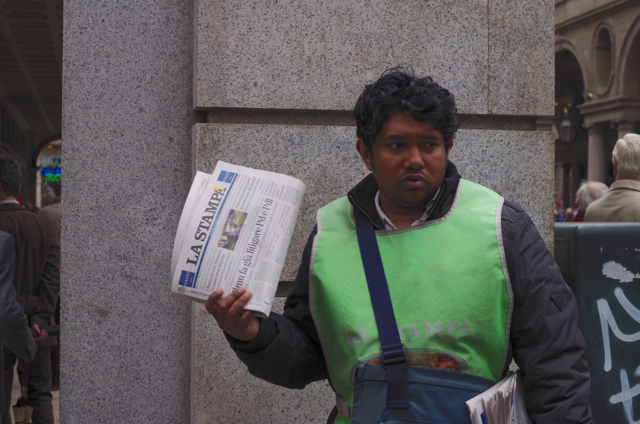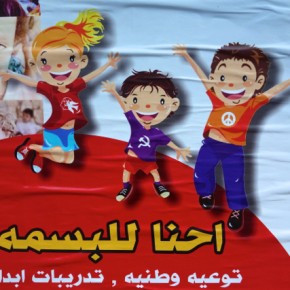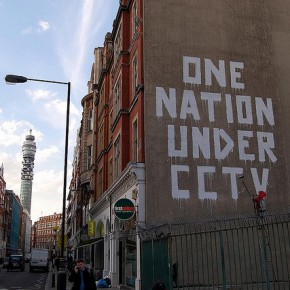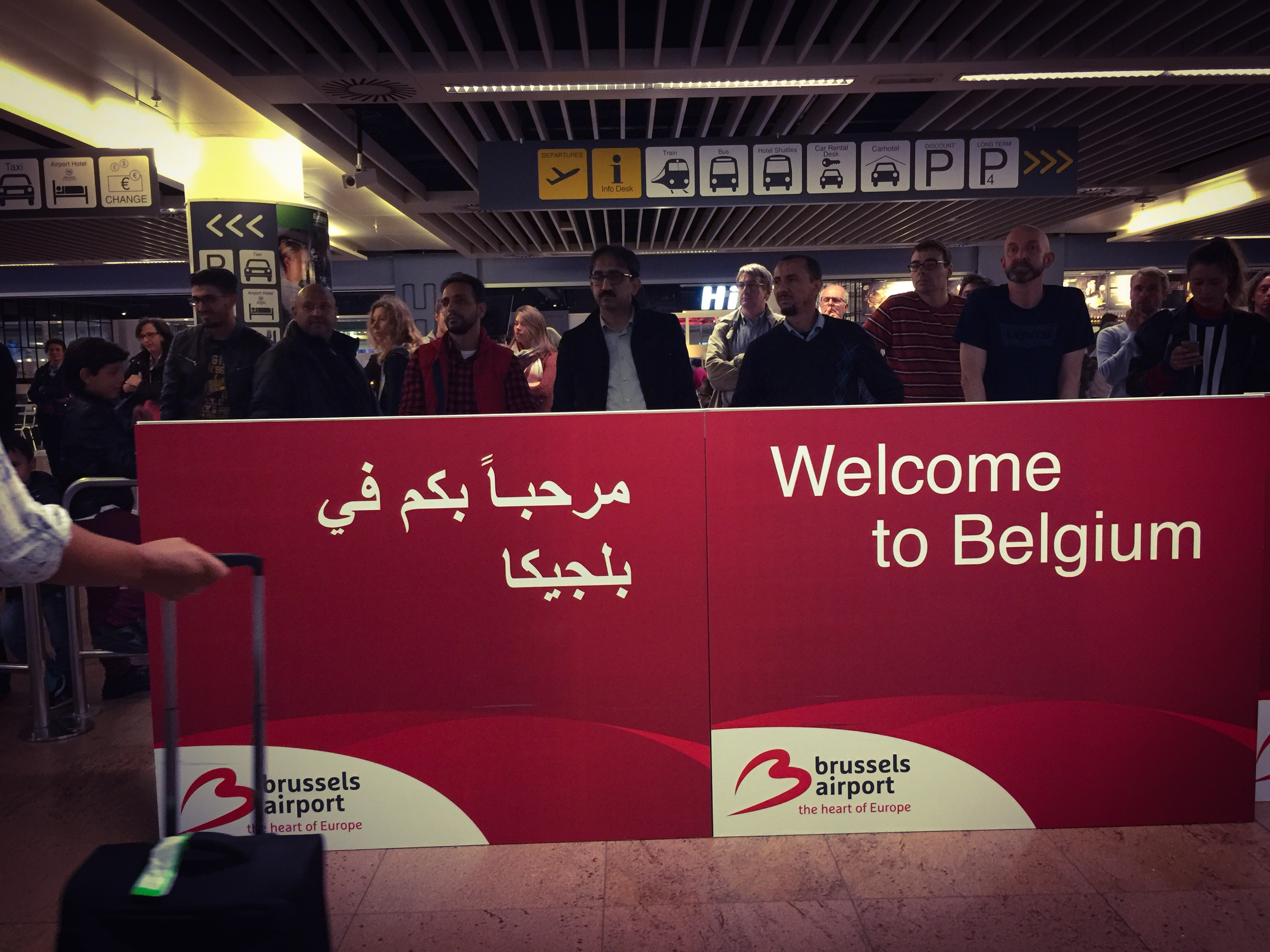It’s May, 2013. I’m standing by a metal detector near the entrance to the masjid. There is an old man sitting a few feet from me. I close my eyes and feel the evening sun on my face, as Urdu phrases begin dancing through the air. I look over at the man singing, his fingers pressing against an instrument that sounds like an accordion. I breathe in as he sings his dervishes. The brassy echoes stroke my body and make me quiver. I feel my heart reaching through my throat and pressing my tear ducts to accept the invitation.
I hear the shoes drop at my feet. I put them on and exit the masjid. I walk through the streets of the Pakistani city of Multan. I hear more Urdu I cannot understand, in the country to which I never thought I would be forced to return. If not personally, for sure, metaphorically. In recent years, I have never felt myself more there, even though my home is here, meaning, America.
It has been a year since I published perhaps the most difficult-to-write piece I have ever written: an account of my difficulties with the Federal Bureau of Investigation, after a mundane summer of language study in Yemen. The article stretched from when the events started in December 2010 to what I believed to be their conclusions in May 2012.
Reading it again shatters my heart, just as the experience did when I lived through it. The piece is full of questions of racism and post-imperialism that I am no closer to answering now than when I was nineteen, unable to understand why a counterterrorism agent’s business card was in my mailbox. It is drenched in uncertainty and bitterness that still suffocates me. The feeling I had then, that the War on Terror produced a situation where I would be doomed to forever navigate the evils of violence, militarism, and chaos, remains a core part of my worldview.
It was a watershed moment for one reason: I felt colored for the first time in my life. Although I always knew myself to be culturally different from other Canadians and Americans (I’m a Canadian Pakistani, currently living in New Jersey,) I never envisioned myself to be a racial minority in a society where I was at a disadvantage. The fact that I was born into the Diasporic Punjabi bourgeoisie secured this even further, with me joining in on the very Anglo-American tendency to individually suspend oneself from the consequences of global events such as the Soviet-Afghan war.
The business card I received from the FBI destroyed all of those illusions in one fell swoop. Since it arrived, I have slowly disassembled every attachment to the status quo that was still in place at that point. As I quietly smoked a cigarette on my friend’s porch in Metuchen, I mentally listed them. I was an ardent supporter of globalization, who is now fiercely critical of neoliberalism. I was attached firmly to friends and family, but now feel more distant from both than ever before. I considered myself male, and am now a gender-fluid female. It was as if one event showed me the barbarity of an arbitrary world, and awoke in me a refusal to accept its authority.

This is probably most relevant in the world of law enforcement harassment, where many minority Americans like me now find themselves wrongly assigned. Thanks to the courageous efforts of figures such as Edward Snowden, many of the same people who told me that I brought the FBI down on myself now understand the breadth of the post-9/11 security state. I suppose I could be frustrated with more enfranchised Americans for only caring about government surveillance when it directly affects them. However, that would mean denying realities about myself.
Before my own experience with American security officials, I never cared about minority politics in the United States. I was effectively a white ethnic, not a Muslim or a Pakistani, and a relatively conservative one at that. I even thought it was funny to host private parties where we would watch ‘stereotypically black movies’ (in my own words.) It was only after my own humiliation that I began to view programs such as Stop and Frisk with the appropriate revulsion.
A large reason why is because, for me, the boundaries that were violated by the FBI always paralleled those that were destroyed in other areas of my life. In typically Freudian terms, trauma is repetitive. We react to an original traumatic event at the mere hint of it. As a victim of child abuse, the FBI’s behavior elicited feelings of violation which were preceded their invasion of my life. Later on, I would find myself recoiling in the same ways, watching scenes, on the news, that had something to do with violation, especially accounts of military raiding parties, typical of the War on Terror. Soldiers burst into dwellings, looking for guerrillas, etc. It was terrifying.
Perhaps such anecdotes are meaningless. I don’t meant to belabor the point that I have been unfairly stigmatized, as my experience is highly subjective. Still, it strikes me as most important that when people realize that they are a part of history, that they understand that fully, and do their best not to forget what it all means. Who cares if there are people who are concerned about surveillance now, that didn’t care ten years ago. All that matters is that they care now, and have the capacity to empathize of those who’ve been hurt by it.
Still, I find myself dispirited. My attachment to life weakens a little more with each passing day, knowing how little control I have of the circumstances I’m living through. Many of my waking hours are spent feeling as though I am witnessing the lives of everyone I know suspended from the world around them, as though they are actors in an elaborate play. A member of the audience, I sit in the very back, in a daze, struggling to maintain my composure. No one wants to come near me. Once again, I hear the words of a former college professor: “[Bilal], you have to assume that if you do what you want to do, people are going to think that you’ve been radicalized.”
And for what? For being a middle class South Asian fan of activists like Audre Lorde and Ella Baker? What’s so wrong with that? If I’d been a white college student, at best, I’d be considered soft liberal, perhaps even passe. But because I am a Muslim foreigner, albeit one whose national identity is conflated with terrorists, I must be a closeted jihadist. Had he never read leftists like Tariq Ali, or listened to bands like Asian Dub Foundation? Vandana Shiva was an especially popular environmentalist in the US at the time. I can only assume he was provincial, or at his worst, stupid.
Reading an article in The Guardian this weekend, about growing German anger over PRISM, and its invasion of millions of unsuspecting Europeans’ privacy, I found myself feeling an awkward moment of release. It was as though they’d all been remade Pakistanis, by the NSA. These people would definitely know what it would like to feel criminalized for being foreign. Not necessarily Muslim, like me, but simply abroad. For a moment I found myself feeling grateful towards the FBI. They’d unintentionally made me a part of a much larger community, one which has little to do with my religious background, or, god forbid, my ethnicity.
Photographs courtesy of Joel Schalit





